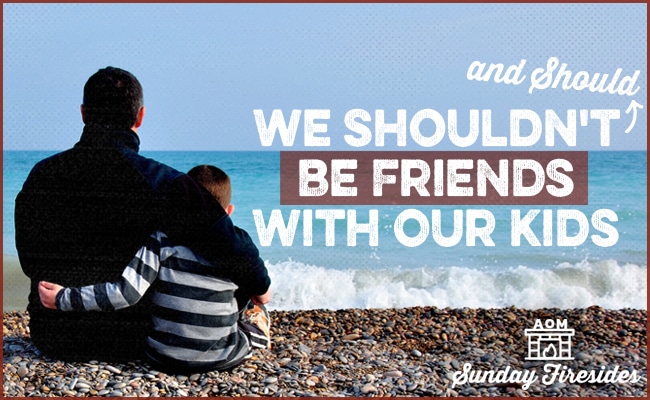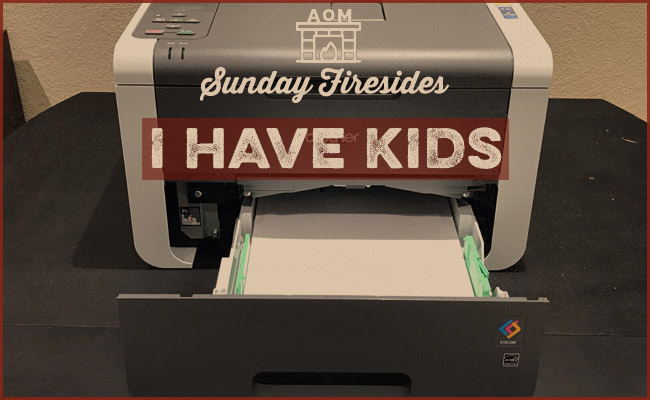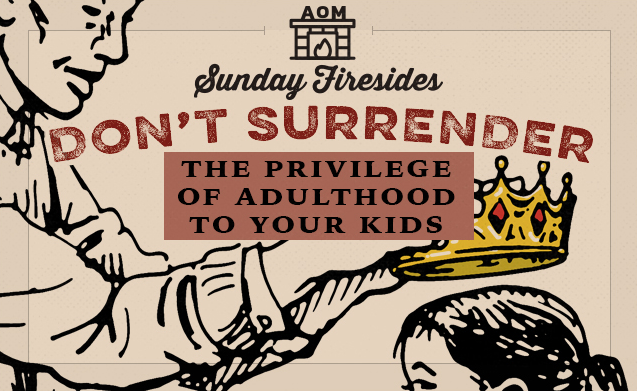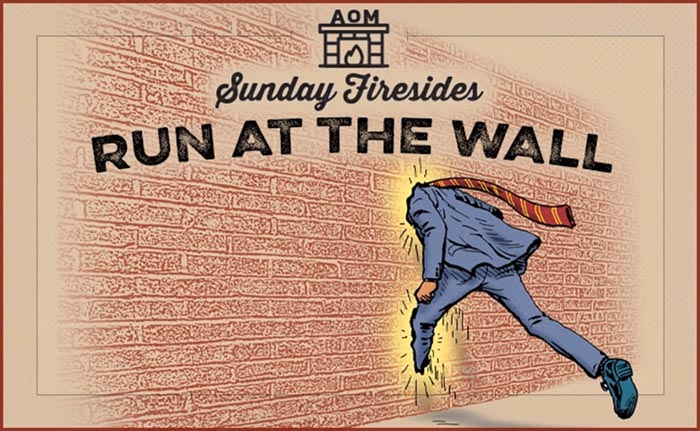
The parent-child relationship is unique.
Sometimes you’re looking at someone half your height and thirty years your junior and viscerally feel: “You’re my best buddy.”
But is it good to think of our children as friends?
It is. And it isn’t.
Friendships are based on equality.
Children relate to their parents as dependents.
Some parents, cognizant of this dependence, fret over forcing anything on their kids. They treat their children as peers, allowing them to make all of their decisions for themselves.
But children, having only been alive a fourth of the time their parents have, lack the context to do so. They need grown-ups to act as guides who apply training wheels to their choices. Kids need the kind of admonishment and discipline that would be inappropriate to offer a friend, but serve as the vital structure that will someday allow them to stand on their own two feet.
While thinking of your child as a friend isn’t helpful in building their character, it is in building a bond.
Parents often worry about the job they’re doing, feeling like their relationship with their children is fundamentally different than every other kind. But when it comes to creating closeness, the same dynamics apply.
If you had dinner with a friend nearly every night for years, and you spent that meal looking them in the eyes, asking about their day, and taking an interest in their interests, how close would your relationship be?
Very close.
If, in addition, you talked to this friend every night before bed, listening to their hopes and empathizing with their worries, how strong would your connection be?
Extremely strong.
Treat your child like a friend — in this way — and there’s a good chance that even when they’re grown, they’ll not only feel like a best buddy, but truly be one.







